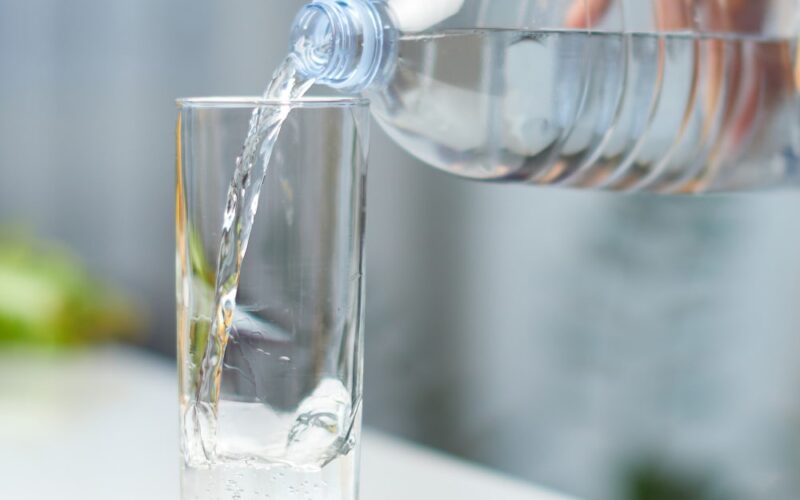We consume the daily amount of water needed to survive. Since the day we were born, we have been drinking water regularly. This is commonplace, and many individuals take water for granted. Although we typically engage in this behavior when we are thirsty, our bodies also require water at other times. Let’s examine the function of water in more detail.
What role does water play?
According to Hilton (2019), the following are the roles that water plays in the human body:
・Saliva production
Saliva is necessary for the decomposition of food. It contains a large amount of water and is one of the representative components of saliva.
・Regulation of body temperature
People sweat on a hot day and after exercise and can regulate their temperature by sweating. When they sweat, they lose water in their bodies. Therefore, it is important for us to drink water to prevent the rise of our body temperature.
・Waste removal
We can release harmful substances from the body through sweating, urination, and defecation. However, when there is a lack of water to promote them, waste products accumulate in the body. Drinking water also helps prevent constipation.
・Food absorption and digestion
Water has the effect of helping the decomposition of food. Therefore, hydration before, during, and after meals improves digestion and absorption.
・Diet
Water improves circulation and increases metabolism. Moreover, we can feel satiety, so we will eat less.
・Disease prevention
Drinking water activates the absorption of nutrients and the removal of waste products and improves the circulation of the body, which leads to disease prevention. In addition, water has the effect of increasing the level of oxygen in the blood. It is also closely related to concentration and thinking ability, so drinking water will help keep our whole body healthy.
・Skin hydration and moisturization
Water can moisturize the skin. As a result, more collagen is produced, making the skin smoother.
How much water does the human body need?
Mayo Clinic Staff (2022) said 50–70% of human body weight is made up of water. Water is essential for our bodies. When we don’t drink enough water, we become dehydrated and get tired easily.
The daily water requirement is set by the NHS. These intakes are fixed at 2.5 liters for men and 2 liters for women of caffeine-free beverages. We take in about 20–30% of these through our diet (Hilton, 2019).
These recommendations for intake, though, may differ from person to person. People who exercise frequently, live in hot regions, are pregnant, or are nursing need to drink more water than the average population. Additionally, it’s important to stay hydrated even if you’re not feeling well, such as when you have diarrhea, vomiting, or a fever. However, since they contain a lot of sugar and negatively impact the body, sugary drinks like orange juice and soda should be avoided (Mayo Clinic Staff, 2022).
We can tell if we are dehydrated by the color of our urine. Pale yellow and clear urine is healthy, but when it’s dark, we should be careful (Hilton, 2019). It is important to drink a glass of water continuously to avoid dehydration, even when we are not thirsty, such as when eating or exercising (Mayo Clinic Staff, 2022).
How should I get the amount of water I need?
People can keep healthy by taking in a lot of water from their bodies. However, taking in the required amount of water is not easy. We need to review our daily lives and consciously drink water. Here’s how, per Shoemaker (2023):
- Replace drinks with water.
Replacing sugary drinks such as sweet juices and sodas with water can help prevent weight gain and a variety of illnesses. If people don’t like the taste of water, adding some fruity flavor will make it easier to drink.
- Eat foods with a high water content.
It is difficult for us to continue to drink water, so eating fruits and vegetables can help us stay hydrated. In particular, lettuce, celery, zucchini, cabbage, and watermelon are more than 90% water by weight. Moreover, they are also good for our health as they are rich in vitamins and minerals.
- Hydrate before you get thirsty.
When we feel thirsty, we are already dehydrated. It’s important to drink water regularly, even if we don’t feel thirsty.
References
Hilton, R. (2019). Why is Water so Important for our Bodies? [online] Vapur. Available at: <https://www.vapur.us/about/blog/why-is-water-so-important-for-our-bodies.html#:~:text=It%20Helps%20You%20Get%20Rid> [Accessed 1 June. 2023].
Mayo Clinic Staff (2022). Water: How Much Should You Drink Every day? [online] Mayo Clinic. Available at: <https://www.mayoclinic.org/healthy-lifestyle/nutrition-and-healthy-eating/in-depth/water/art-20044256#:~:text=So%20how%20much%20fluid%20does> [Accessed 1 June. 2023].
Shoemaker, S. (2023). 12 Simple Ways to Drink More Water. [online] Healthline. Available at: <https://www.healthline.com/nutrition/how-to-drink-more-water> [Accessed 2 June. 2023].
Simson, R. (2021). 10 healthy ways to increase your fluid intake. [online] Roswell Park Comprehensive Cancer Center. Available at: <https://www.roswellpark.org/cancertalk/202108/10-healthy-ways-increase-your-fluid-intake> [Accessed 3 June. 2023].
